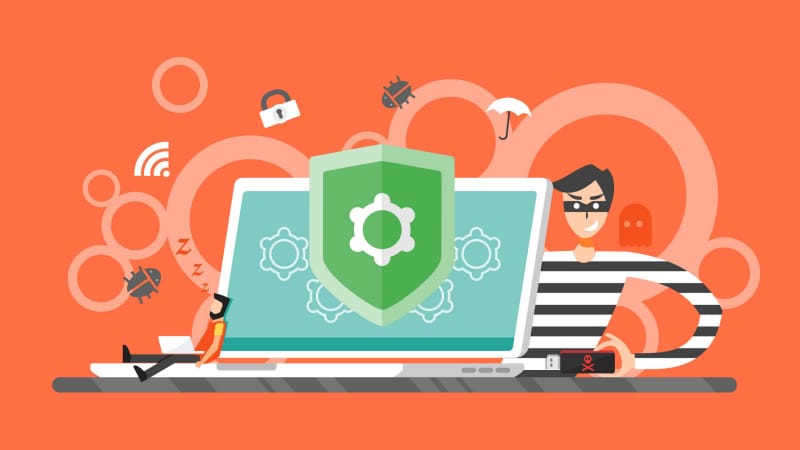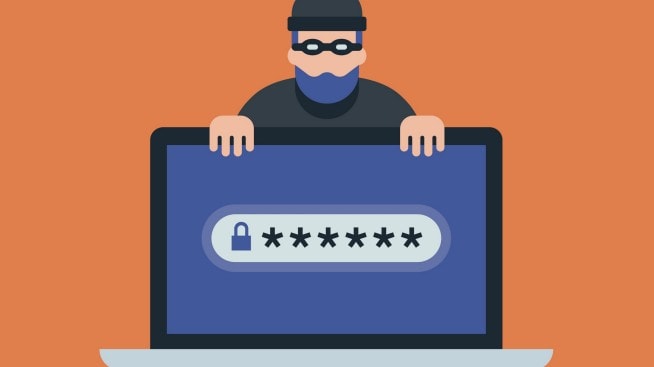Identity theft vs credit card fraud: What are the differences and similarities?

You may have heard the terms "fraud" and "theft" before when it comes to your identity or credit cards—but how are they related? Are they inherently the same?
The answer lies in the context and what is being stolen. Identity theft involves stealing your identity and using it to gain access to other information to perform crimes such as credit card fraud. Credit card fraud can happen on its own or as a result of identity theft.
In this article, you will learn:
- What identity theft is
- What credit card fraud is
- How identity theft is used for credit card fraud
- Why identity monitoring is important
What is identity theft?
Identity theft is the act of stealing someone's information to commit a myriad of crimes for their own benefit. The information stolen to perform identity theft includes but are not limited to:
- Name
- Social Security number (SSN)
- Credit card numbers
- Address and date of birth
While identity theft is similar to credit card fraud in that it involves stealing your information and using it against you for personal gain, there are some slight differences. Let's explore both identity theft and credit card fraud in more detail below.
How does identity theft occur?
Sensitive information can be stolen in many ways, including online and by obtaining physical information. For example, someone could steal your identity by obtaining your mail and collecting information from documents like health insurance claims or billing statements.
On the other hand, if you use unsecure websites or a public Wi-Fi, you may be opening yourself up to a criminal hacking into your accounts and stealing your information online. Additionally, someone may also get your information from the dark web, a network where criminals can buy and sell sensitive information. Identity theft is committed for a variety of reasons, such as to try to drain your bank accounts, obtain your tax refunds, create fake profiles, commit employment identity theft and more. A perpetrator could also steal your identity with the intent of gaining access to your account information and commit credit card fraud. Let's explore this more below.
What is credit card fraud?
Credit card fraud is a specific type of theft that deals with stealing your credit card information to steal funds and make unauthorized purchases.
If a criminal has stolen your identity, it's possible for them to gain access to your credit cards and commit fraud that way. However, there are other ways credit card fraud occurs.
For example, if you frequently shop online and save your credit card accounts on your browser, a hacker could steal this information, especially if you're using an unsecure website or a public Wi-Fi. Additionally, someone could steal your wallet or phone to hack into your digital wallet. Sometimes these occurrences happen so quickly that we don't realize it right away. Let's go over ways you can spot credit card fraud.
Check your credit report and statements
If you regularly monitor your credit and bills, you can spot any errors or suspicious activity. Are there items on your credit report or billing statements you don't recognize? Are you realizing your bills are racking up with no reason? Are you suddenly receiving bills for purchases you didn't authorize? These are just a few signs you could be for a victim of credit card fraud. Remember—you are much more likely to see these errant bills on your monthly statement or online banking list of transactions.
Check your credit score
If you regularly check your score and know what your credit score is, seeing a sudden change or dip in this number can be a red flag that something is wrong. When you enroll in Chase Credit Journey®, you can sign up for credit monitoring services to stay alert for any suspicious activity.
Credit card fraud is a serious crime, and a possible indicator that identity theft has also occurred.
How identity theft is used for credit card fraud
If your identity has been stolen, it's quite possible you're finding this out after the fact. Are you seeing bills, accounts or balances you don't recognize? Has there been a significant dip in your score? These signs could indicate that you might already be impacted.
Your SSN is one of the most important pieces of identifying info—someone can use your SSN as like a gateway for gaining access to other personal info like your name, address and more. If your SSN is stolen, you could be at risk of credit card fraud or even someone taking out credit cards or bank accounts under your name. If this happens, immediately contact the Federal Trade Commission to report it, as well as notify the police, authorities and your financial institutions to prevent further damage.
Identity theft puts you at risk for becoming a victim of other crimes, not just credit card fraud. For example, someone could steal your identity in order to obtain your tax refunds, create fake profiles, perform employment identity theft and more.
Why identity monitoring is important
While we cannot stop identity theft and credit card fraud from happening, there are ways you can try to mitigate being put at risk. When you enroll in Credit Journey®, you have the option to sign up for both identity and credit monitoring services. These services will notify you of suspicious activity, such as data breaches, and surveillance of your data online. While Credit Journey cannot prevent theft or fraud from happening, these preventative measures can help your information and your credit remain protected.
It's a good idea to be alerted when fraudulent activity is found with services like these so you can take action and prevent further damage. If there's been a data breach, you can take action by changing your passwords or using more secure websites.
At the end of the day, your identity and information surrounding it are important—help safeguard them today by enrolling in Chase Credit Journey®.



